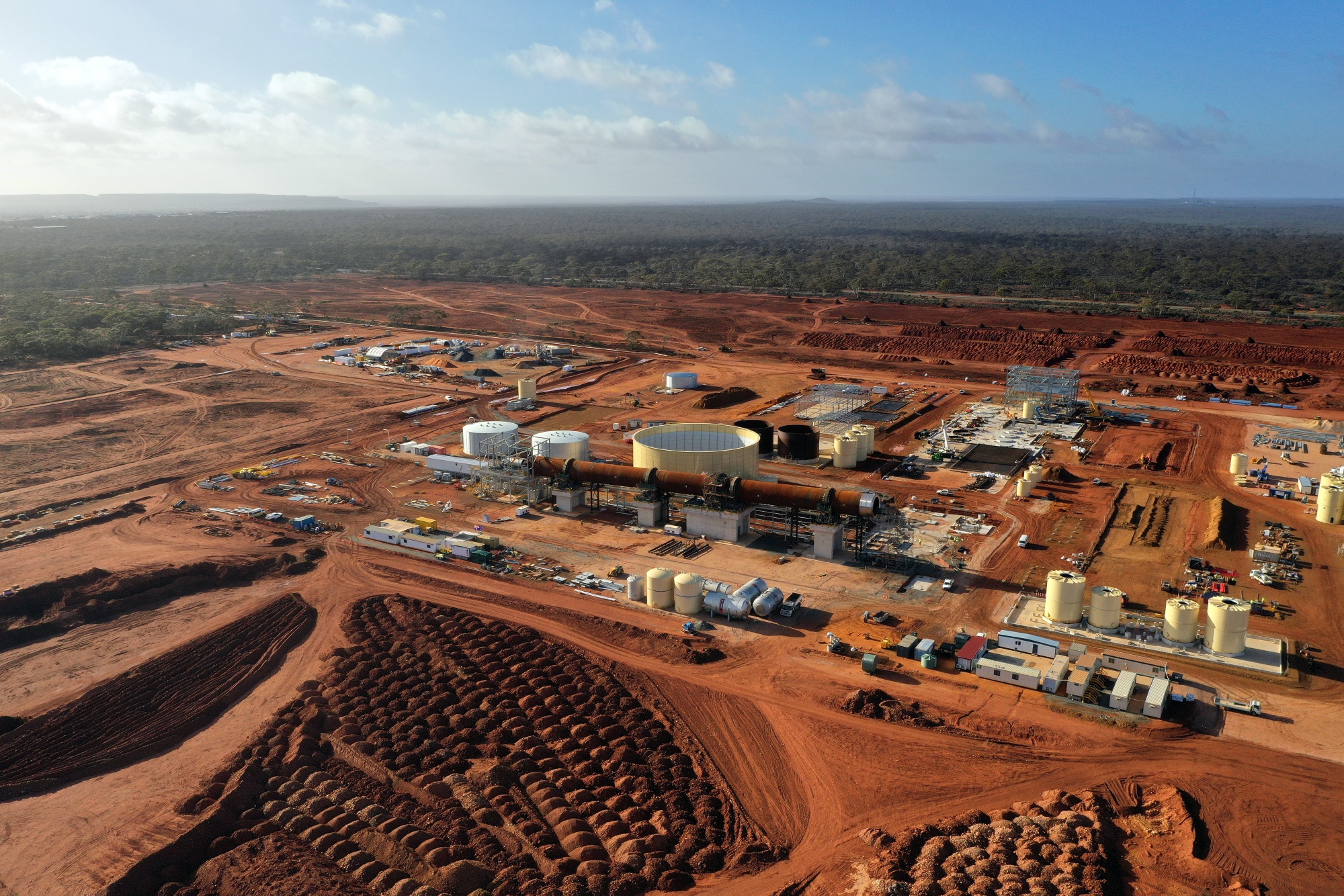Modular Construction: A Viable Solution For Canada's Housing Crisis?

Table of Contents
Modular construction involves prefabricating building components in a controlled factory environment and then transporting and assembling them on-site. This method offers several key advantages over traditional construction, including faster construction times, streamlined project management, and cost-effectiveness.
The Speed and Efficiency of Modular Construction
One of the most significant advantages of modular construction is its speed and efficiency. Prefabrication dramatically reduces overall project timelines.
Faster Construction Times
- Reduced on-site labor: Much of the work happens off-site, requiring fewer skilled tradespeople on-site for assembly.
- Parallel construction processes: Factory production and on-site assembly can happen concurrently, significantly accelerating the overall process.
- Weather-independent assembly: Factory production isn't affected by inclement weather, unlike traditional construction, leading to consistent progress. A modular building project can often be completed in half the time of a traditional build.
Streamlined Project Management
Modular construction simplifies project management, leading to better outcomes.
- Improved cost control: Precise prefabrication minimizes material waste and unexpected costs.
- Better scheduling predictability: The controlled factory environment allows for accurate scheduling and less susceptibility to delays.
- Reduced risk of delays: Weather-related delays and labor disputes are significantly minimized.
Increased Productivity
Factory-controlled environments boost productivity and enhance quality.
- Minimized material waste: Precise pre-cutting and assembly minimize material waste, leading to cost savings and environmental benefits.
- Higher quality craftsmanship: Controlled conditions allow for higher-quality workmanship and increased precision.
- Improved safety standards: Factory settings often have enhanced safety measures, leading to fewer workplace accidents.
Cost-Effectiveness of Modular Building in Canada
Modular construction offers significant cost advantages, making it an attractive option for addressing Canada's housing affordability challenges.
Reduced Labor Costs
Off-site construction reduces labor costs substantially.
- Fewer skilled tradespeople required on-site: Assembly on-site is faster and requires a smaller team.
- Reduced overtime costs: Faster construction timelines minimize the need for overtime pay.
- Less susceptibility to labor strikes: Factory workers are less prone to labor disruptions than on-site crews.
Material Efficiency and Waste Reduction
Precise prefabrication minimizes material waste, promoting sustainability.
- Accurate material estimation: Detailed plans minimize over-ordering and material waste.
- Less material spoilage: Controlled factory conditions protect materials from damage.
- Sustainable construction practices: Reduced waste contributes to environmentally friendly building practices.
Potential for Long-Term Cost Savings
Modular buildings offer long-term cost advantages.
- Durable materials: High-quality materials contribute to a longer lifespan.
- Reduced energy consumption: Efficient designs contribute to lower energy bills.
- Extended building lifespan: Properly constructed modular buildings can last for decades, reducing replacement costs.
Addressing Concerns and Challenges of Modular Construction in Canada
While promising, modular construction faces certain challenges in the Canadian context.
Transportation and Logistics
Transporting modules across Canada's vast geography presents logistical challenges.
- Optimized transportation routes: Careful planning of transportation routes is crucial for efficient delivery.
- Specialized transport vehicles: Specialized vehicles are needed to handle the size and weight of modular units.
- Regional manufacturing facilities: Establishing regional manufacturing facilities could reduce transportation costs and times.
Building Codes and Regulations
Navigating building codes and regulations is crucial for successful implementation.
- National building codes compliance: Meeting national building code requirements is essential.
- Provincial variations: Understanding and adapting to provincial variations in building codes is necessary.
- Adaptation and compliance strategies: Proactive strategies are needed to ensure compliance and avoid delays.
Public Perception and Acceptance
Addressing public misconceptions about modular construction is vital for its wider adoption.
- Educating consumers on the benefits: Highlighting the speed, cost-effectiveness, and quality of modular buildings is key.
- Showcasing successful modular projects: Publicly showcasing successful projects demonstrates the viability of the approach.
- Addressing aesthetic concerns: Modern modular designs can address aesthetic concerns and dispel outdated perceptions.
Case Studies of Successful Modular Construction Projects in Canada
Several successful modular construction projects demonstrate the benefits of this approach in Canada. For example, [Insert specific example 1 with data and project type], and [Insert specific example 2 with data and project type] show how modular construction has successfully delivered affordable housing units quickly and efficiently. These projects have proven to be cost-effective, sustainable, and highly adaptable to varying needs.
Conclusion: Modular Construction – A Key to Solving Canada's Housing Crisis?
Modular construction offers a compelling solution to Canada's housing crisis. Its speed, efficiency, and cost-effectiveness make it a strong contender for addressing the urgent need for affordable and sustainable housing. While challenges related to transportation, regulations, and public perception exist, strategic planning and proactive measures can overcome these hurdles. Further exploration and adoption of modular construction techniques, coupled with supportive government initiatives, are crucial for unlocking its full potential. Learn more about modular construction projects near you and advocate for its wider adoption to contribute to a solution for Canada's housing challenges.

Featured Posts
-
 Giants Vs Mariners Injury Report April 4 6 Series Preview
May 17, 2025
Giants Vs Mariners Injury Report April 4 6 Series Preview
May 17, 2025 -
 Wnba Opening Weekend Get Your Angel Reese Jersey Now
May 17, 2025
Wnba Opening Weekend Get Your Angel Reese Jersey Now
May 17, 2025 -
 Mariners Vs Tigers Series Injury Report And Game Preview March 31 April 2
May 17, 2025
Mariners Vs Tigers Series Injury Report And Game Preview March 31 April 2
May 17, 2025 -
 Stock Market Valuation Concerns Bof As Rationale For Investor Confidence
May 17, 2025
Stock Market Valuation Concerns Bof As Rationale For Investor Confidence
May 17, 2025 -
 Lynas The First Heavy Rare Earths Producer Outside China
May 17, 2025
Lynas The First Heavy Rare Earths Producer Outside China
May 17, 2025
Latest Posts
-
 Government Crackdown On Delinquent Student Loan Borrowers What You Need To Know
May 17, 2025
Government Crackdown On Delinquent Student Loan Borrowers What You Need To Know
May 17, 2025 -
 Segunda Presidencia Trump Que Significa Para Los Deudores De Prestamos Estudiantiles
May 17, 2025
Segunda Presidencia Trump Que Significa Para Los Deudores De Prestamos Estudiantiles
May 17, 2025 -
 Parental Anxiety Over College Tuition Decreases But Student Loans Persist Survey Data
May 17, 2025
Parental Anxiety Over College Tuition Decreases But Student Loans Persist Survey Data
May 17, 2025 -
 Brace For A Credit Score Drop The Impact Of Missed Student Loan Payments
May 17, 2025
Brace For A Credit Score Drop The Impact Of Missed Student Loan Payments
May 17, 2025 -
 Futuro Incierto Deudores De Prestamos Estudiantiles Y La Reeleccion De Trump
May 17, 2025
Futuro Incierto Deudores De Prestamos Estudiantiles Y La Reeleccion De Trump
May 17, 2025
